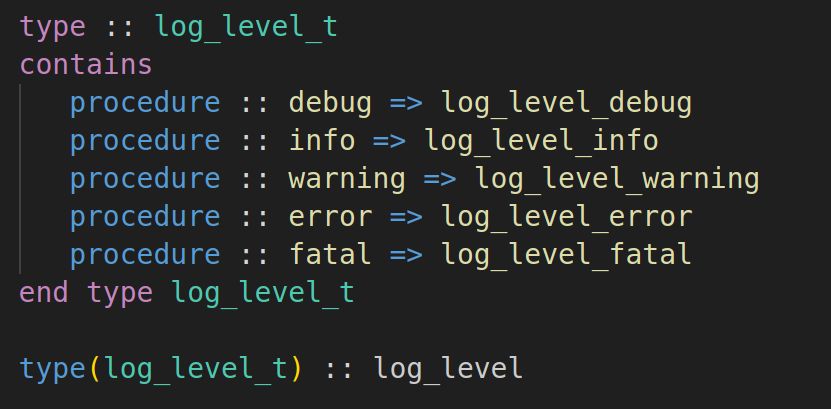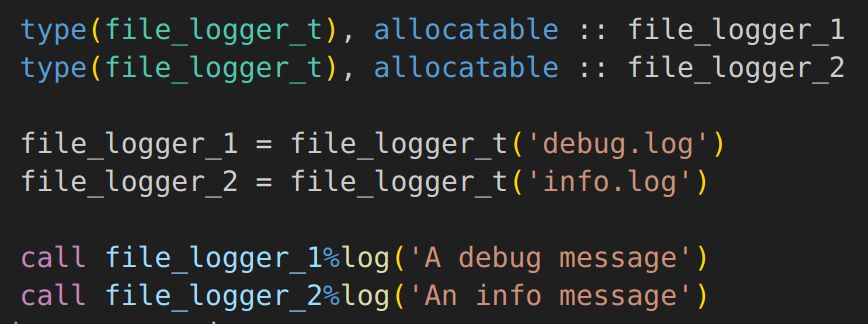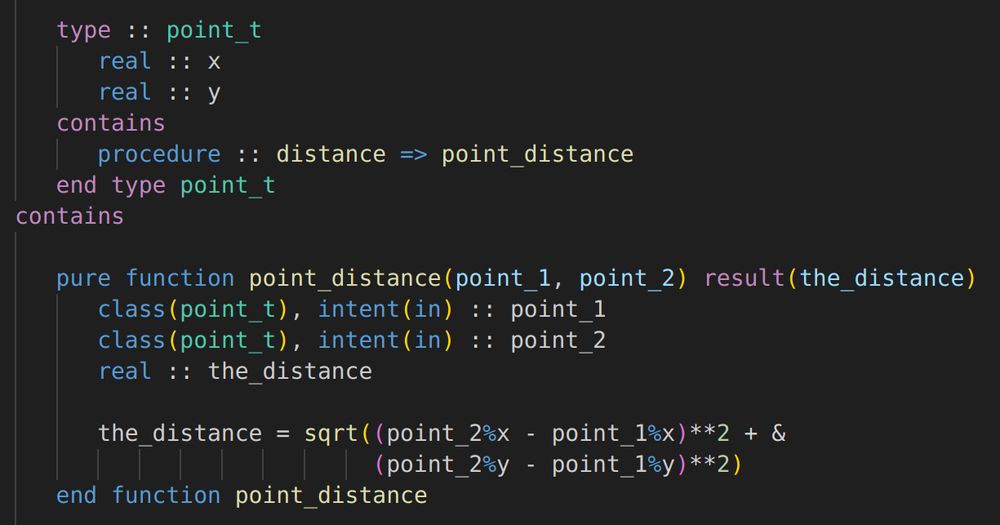
Model kit: Cross-section

Model kit: Wijdschip/Smalschip
With 2 model kits in my portfolio it was time to start my own website/trademark! Noback Ship Models nobackshipmodels.com
06.10.2025 07:53 — 👍 1 🔁 0 💬 0 📌 0

A proud Nicolas holding a physical copy of his book. The book is 200 pages long. Its cover is mostly red and titled "Legacy Code: First Aid Kit" with some bandage, and a subtitle: "14 techniques to quickly and safely rescue a codebase"

The book is open at page 85. The chapter is titled "Decouple Core from Infrastructure". We can see some explanations along code snippets that have syntax coloring and a font size large enough to be comfortable to read.

The book is opened at page 35. The current chapter is titled "The Mikado Method & The Parking". On this page we can see there is an image to illustrate the concept being explained. It's readable enough to be comfortable. We can also see a footnote that links to Philippe Bourgau's blog because he was a relevant source for this concept.
Alright, let's make it official…
I am super-proud to tell you that I have finally published the print version of my book: "Legacy Code: First Aid Kit" 🎉 📕 🥲
17.09.2025 14:14 — 👍 24 🔁 8 💬 4 📌 0
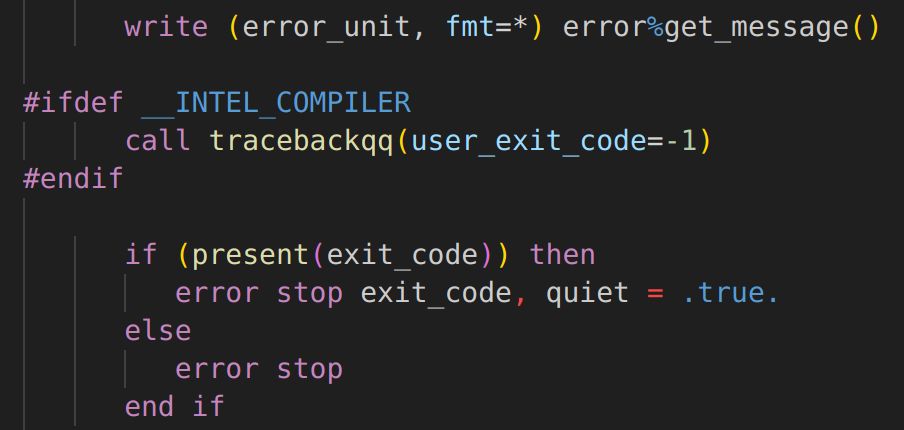
Fortran - Errors and error handling - Part 7 - Fatal errors
Stop with error code, error message, and stack trace
New #Fortran post: "Errors and error handling - Part 7 - Fatal errors" matthiasnoback.nl/2025/07/fort...
Almost everywhere in our code should we allow errors to bubble up to higher abstraction levels, until we get to the point that we'd like to terminate the program. How to do that properly?
21.07.2025 07:19 — 👍 0 🔁 0 💬 0 📌 0

Fortran - Errors and error handling - Part 6 - Guarantees
The Evidence Pattern
New #Fortran post: "Errors and error handling part 6: Guarantees" matthiasnoback.nl/2025/07/fort...
If we want guarantees that data in a DT is correct, we have to use a custom constructor. Such a constructor then needs another Either return type so it can return a validated instance or an error.
18.07.2025 07:00 — 👍 0 🔁 0 💬 0 📌 0
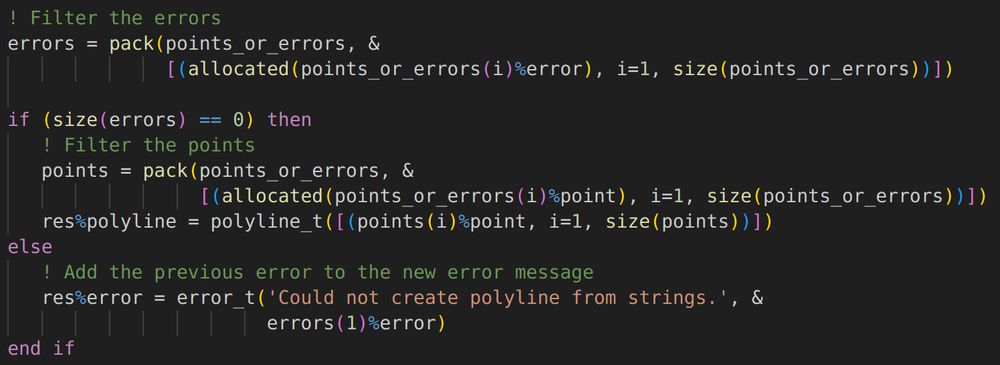
Fortran - Errors and error handling - Part 5 - Error propagation
Error propagation and nesting
New #Fortran post: Errors and error handling part 5: Error propagation matthiasnoback.nl/2025/07/fort...
We redesign the error value so lower-level errors can be "wrapped" inside higher-level errors.
17.07.2025 06:56 — 👍 1 🔁 0 💬 0 📌 0
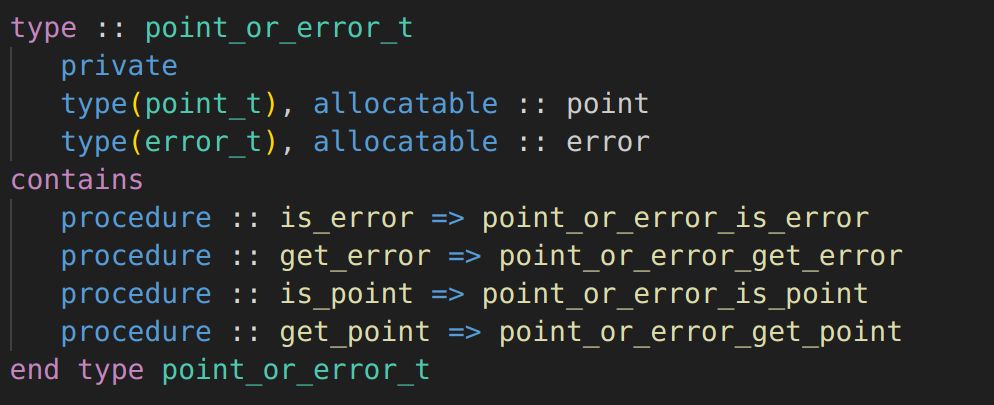
Fortran - Errors and error handling - Part 4 - Using an Either type
Dealing with parse errors
New #Fortran post: "Errors and error handling - Part 4 - Using an Either type" matthiasnoback.nl/2025/07/fort...
We consider a problem that involves parsing and find a solution to deal with errors: a parse function that returns an "Either" type, containing an error, or the expected result.
16.07.2025 06:14 — 👍 0 🔁 0 💬 0 📌 0
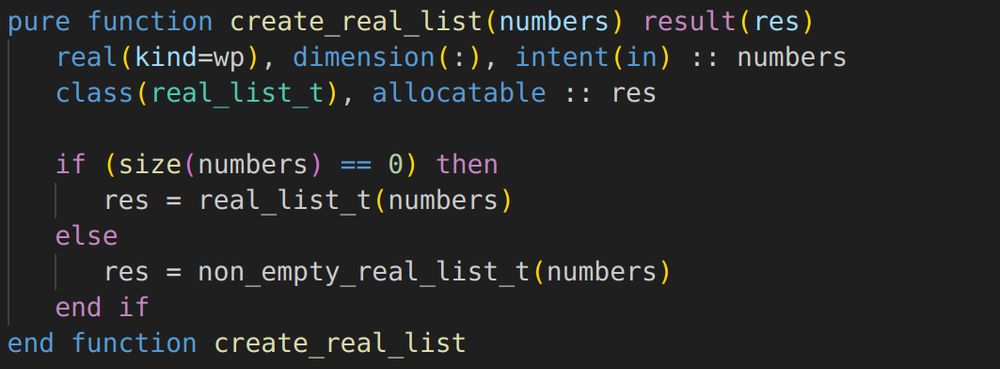
Fortran - Errors and error handling - Part 3 - Preventing edge cases with types
An alternative: the non-empty list type
New #Fortran post: Preventing edge cases with types matthiasnoback.nl/2025/07/fort...
We look at an alternative solution for calculating the average of an empty list; only offer such a procedure for a non-empty list.
15.07.2025 07:50 — 👍 0 🔁 0 💬 0 📌 0
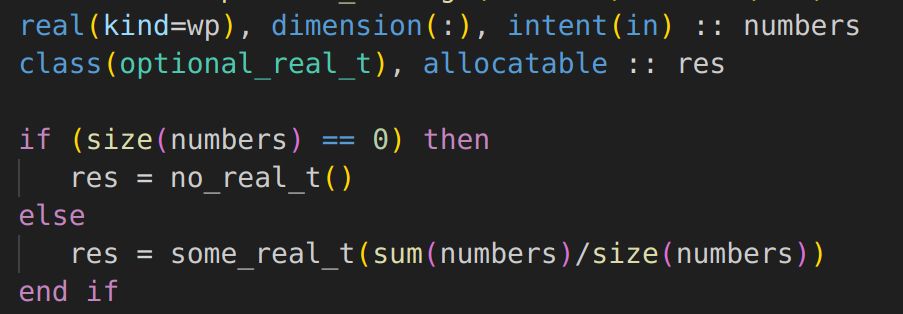
Fortran - Errors and error handling - Part 2
Optional results
New #Fortran post: "Errors & Error Handling Part 2 - Optional Results matthiasnoback.nl/2025/07/fort...
Instead of returning a success flag and use an intent(out) argument to return the actual function result, we implement an optional return value using an abstract derived type and two subtypes.
11.07.2025 07:14 — 👍 0 🔁 0 💬 0 📌 0
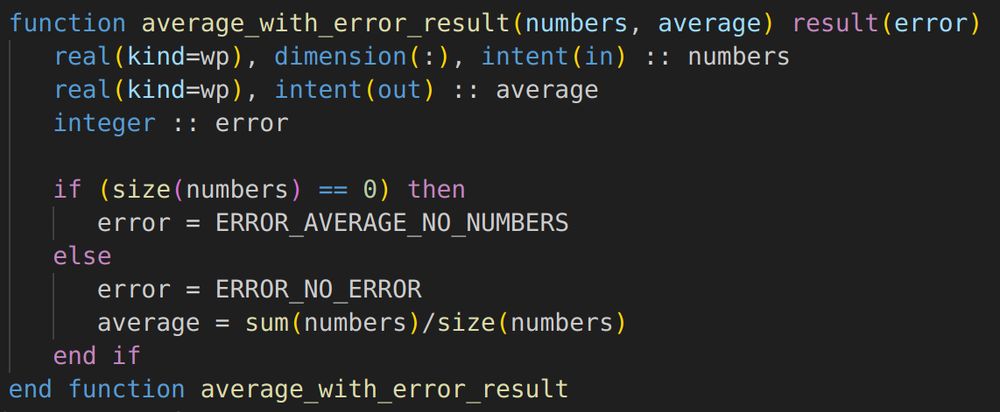
Fortran - Errors and error handling - Part 1 - Exploration
Exploring our options
New #Fortran post "Errors and error handling, part 1: Exploration": matthiasnoback.nl/2025/07/fort...
The first part in a series about dealing with errors: we explore some common approaches and what their downsides are.
10.07.2025 07:18 — 👍 0 🔁 0 💬 0 📌 0
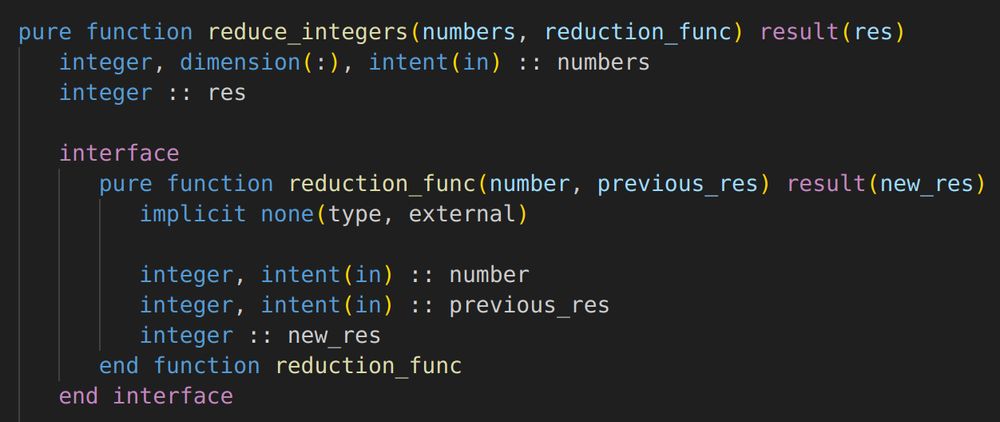
Fortran - Functional Programming Concepts - Reduce
Reducing arrays to a single value
One extra #Fortran post for today: "Functional Programming Concepts - Reduce" matthiasnoback.nl/2025/06/fort...
Having discussed filter and map which transform arrays into new arrays, we still need another function: reduce, which transforms arrays into single values.
30.06.2025 12:06 — 👍 0 🔁 0 💬 0 📌 0

Fortran - Functional Programming - List type
Adding filter and map behavior to a list type
New #Fortran post: "Functional Programming - List Type" matthiasnoback.nl/2025/06/fort...
By introducing a list type we can bind the functional-style filter and map functions to a derived type, making it possible to "chain" multiple calls.
30.06.2025 07:35 — 👍 1 🔁 0 💬 0 📌 0
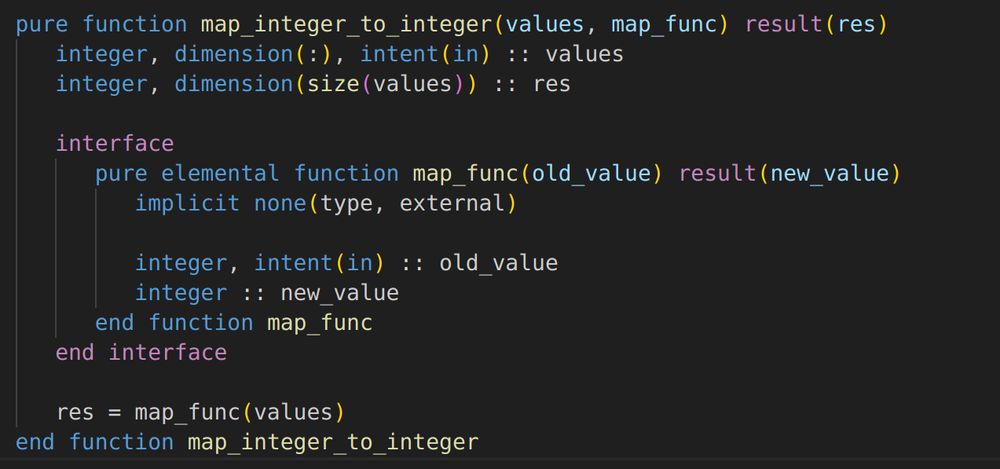
Fortran - Functional Programming Concepts - Map
Transforming arrays
New #Fortran post: "Fortran - Functional Programming Concepts - Map" matthiasnoback.nl/2025/06/fort...
After discussing filter functions, now it's time to work no a map function.
28.06.2025 08:47 — 👍 0 🔁 0 💬 0 📌 0
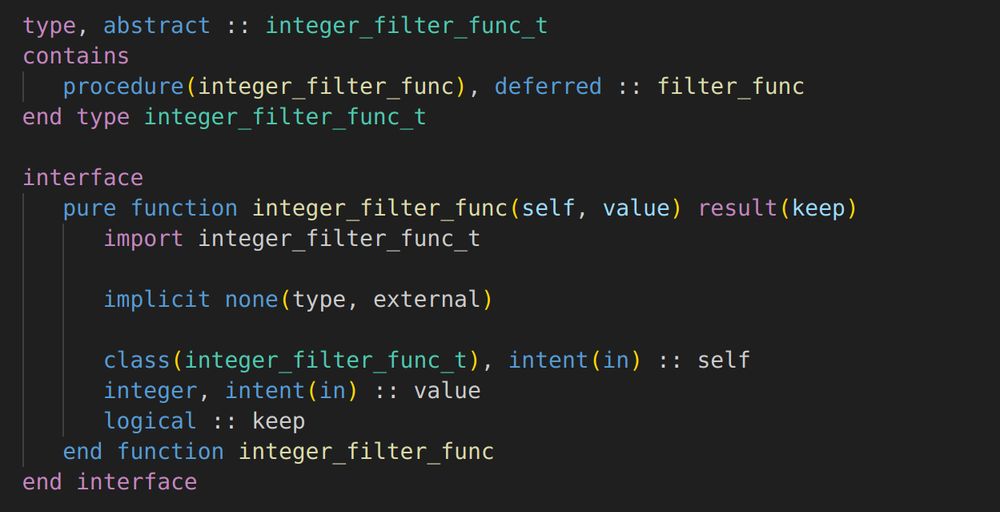
Fortran - Functional programming - Closures
Generic filtering
New #Fortran post: "Fortran - Functional Programming Concepts - Closures" matthiasnoback.nl/2025/06/fort...
Fortran doesn't have good support for higher-order functions and closures, can we replicate them?
27.06.2025 05:55 — 👍 0 🔁 0 💬 0 📌 0

Fortran - Functional Programming Concepts - Generic Filtering
Filtering arrays with other value types
New #Fortran post: "Functional Programming Concepts - Generic filtering" matthiasnoback.nl/2025/06/fort...
Fortran doesn't support generics, which would allow us to reuse the same filter function for arrays of different types of values. In this post we'll explore a work-around for this problem.
26.06.2025 07:16 — 👍 0 🔁 0 💬 0 📌 0
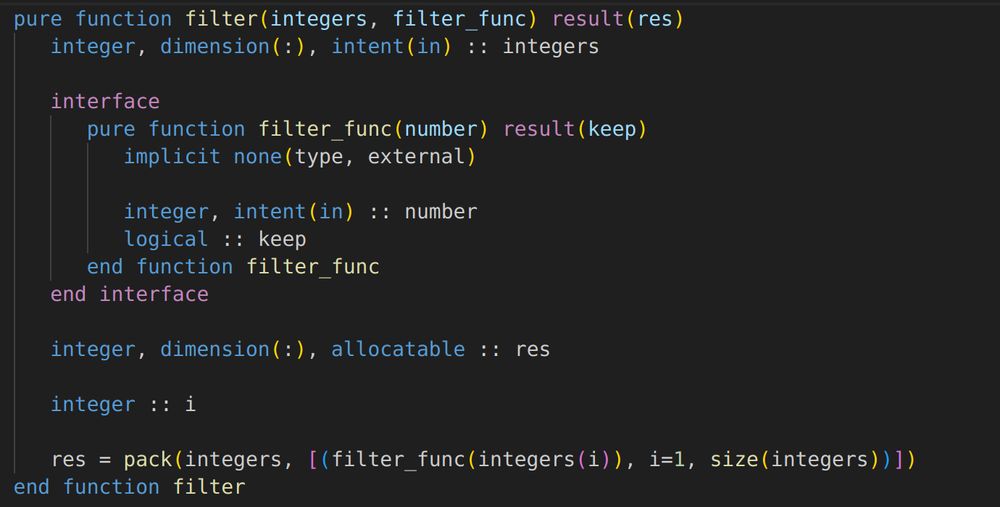
Fortran - Functional Programming Concepts: Filter
Introducing functional programming in Fortran with filtering integers
New #Fortran post: "Fortran - Functional Programming Concepts: Filter" matthiasnoback.nl/2025/06/fort...
Having looked at Object-Oriented programming concepts in Fortran, we now dive into Functional programming concepts. We start with filtering arrays of integers.
25.06.2025 10:24 — 👍 0 🔁 0 💬 0 📌 0
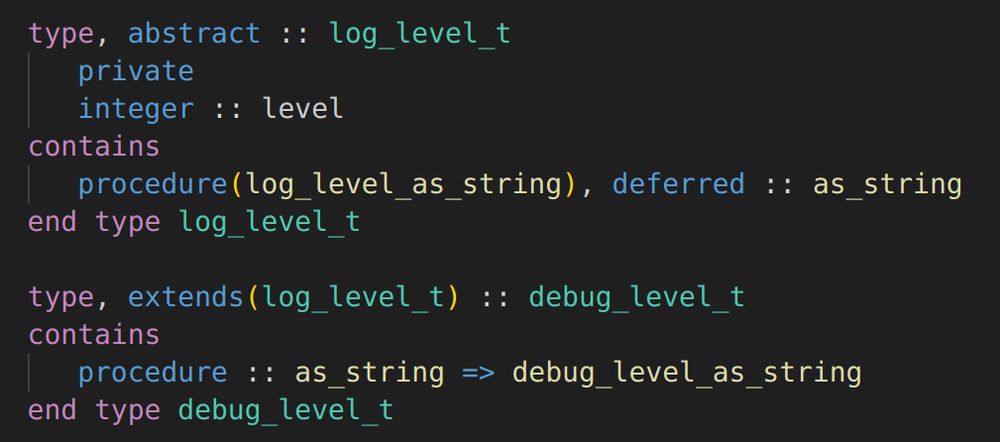
Fortran: Enumeration, part 3
Adding more behavior and introducing enum subtypes
New #Fortran post: "Enumeration, part 3" matthiasnoback.nl/2025/06/fort...
It's surprising how much there is to explore about enumeration types, but here we are with the final part: we further improve the design by making log level an abstract type, and all the concrete levels subtypes.
20.06.2025 07:09 — 👍 1 🔁 0 💬 0 📌 0
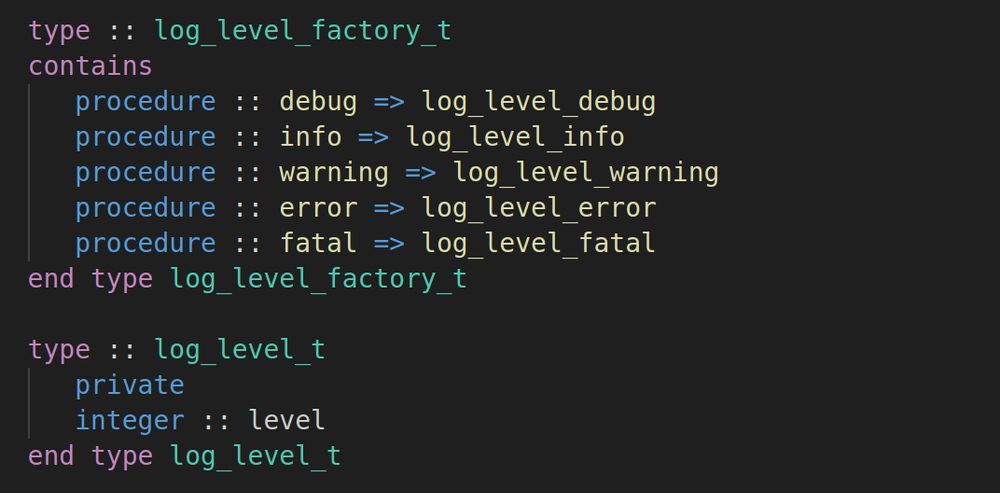
Fortran: Enumeration, part 2
Type safety, a log level factory, and operator overloading
New #Fortran post: "Enumeration, part 2" matthiasnoback.nl/2025/06/fort...
We increase type safety by narrowing the integer level argument to a derived type argument. A new factory type helps us separate responsibilities. Finally we compare levels using operator overloading.
19.06.2025 07:38 — 👍 0 🔁 0 💬 0 📌 0

Fortran: Module Design
Fortran projects are famous for their large modules. Actually, we may also find very large files in legacy projects written in other languages, like Java, PHP, etc. These projects sometimes have…
New #Fortran post: "Module Design" matthiasnoback.nl/2025/06/fort...
We splitt an existing module into smaller modules and put a façade module in front of the smaller ones, so users only have to deal with a simple programming interface. Finally we fix compilation cascade with a submodule.
12.06.2025 10:23 — 👍 0 🔁 0 💬 0 📌 0
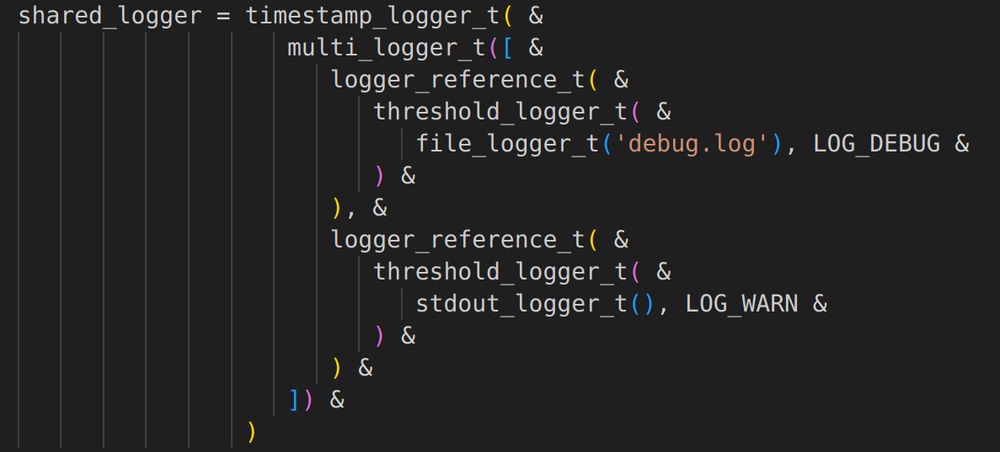
Fortran: Service Composition, part 2: Decoration
In the previous post we saw how to use an abstraction to compose an aggregation of services of that same abstraction. There we simply delegated a call, adding no specific behavior. But we might as…
New #Fortran post: Service Composition, part 2: Decoration matthiasnoback.nl/2025/06/fort...
In this post we explore another way of composing abstractions, which is called decoration. We prefix existing log messages with a timestamp and implement optional delegation based on a configured log level.
11.06.2025 13:53 — 👍 1 🔁 0 💬 0 📌 0
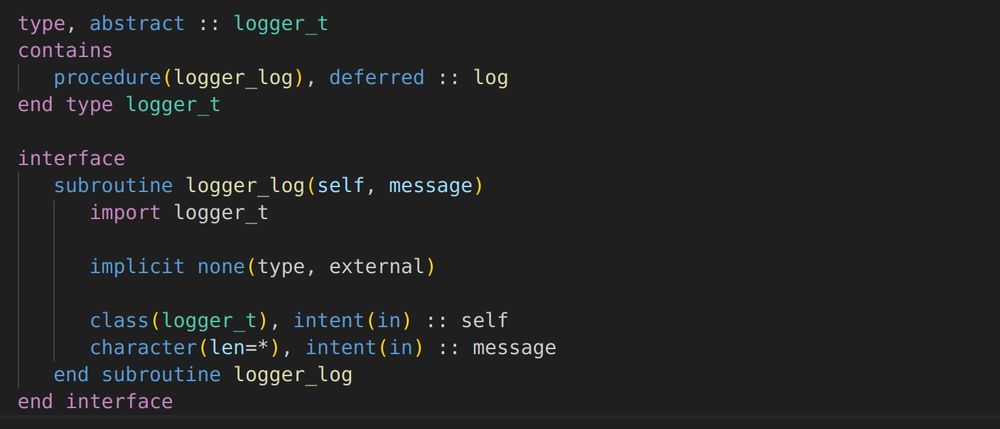
Fortran: Abstract Types and Deferred Procedures
With the new file_logger_t type we were able to model a logger service as a derived type. Now it’s time to make the service abstract. That is, to leave out the implementation detail that it’s a file…
New #Fortran post: "Abstract Types and Deferred Procedures" matthiasnoback.nl/2025/06/fort...
We define an abstract type with deferred procedures (in OO language: an interface) for the file logger. Introducing an abstract factory allows clients to decouple and shows us how polymorphism works.
09.06.2025 08:18 — 👍 1 🔁 0 💬 0 📌 0
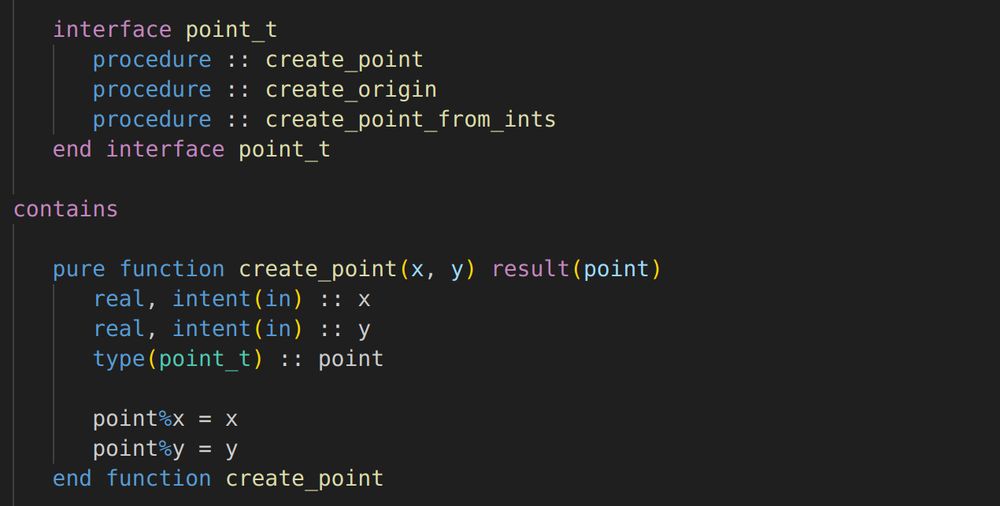
Fortran: Private Data Components and Custom constructors
In the previous post we have worked on the point_t derived type, turning the module procedure distance into a type-bound procedure: module geometry ! ... type :: point_t real :: x real :: y contains…
New #Fortran article: "Private Data Components and Custom Constructors" matthiasnoback.nl/2025/06/fort...
We make the data inside the derived type private (encapsulation), offer alternative ways for creating new instances (factory functions), and expose these alternatives as an abstract function.
04.06.2025 07:33 — 👍 0 🔁 0 💬 0 📌 0
Fortran: Programs and modules
Using IFX, FPM and VS Code
Next #Fortran post: "Programs and modules" matthiasnoback.nl/2025/05/fort... It looks like this is starting to be a Fortran course for people with experience writing in other programming languages...
26.05.2025 11:34 — 👍 1 🔁 0 💬 0 📌 0
Running a simple Fortran program
Using IFX, FPM and VS Code
Second #Fortran post: "Running a simple Fortran program" matthiasnoback.nl/2025/05/runn... Using very modern tooling :)
23.05.2025 14:04 — 👍 4 🔁 1 💬 0 📌 0
Test. Code. Refactor. Repeat!
Independent tech consultant from Hamburg, Germany. Author of "Architecture for Flow", combining #WardleyMapping, #DDD, and #TeamTopologies as a holistic approach to designing and building adaptive, socio-technical systems optimized for flow.
Fractievoorzitter Partij voor de Dieren Tweede Kamer / Activist / Dutch MP for first ever political party for animal rights elected to office (2006) 🌱🐮💚🌍
Maker of animated and visual effect things
I'm also on Instagram: https://www.instagram.com/sheep_films/
psycholoog, professor, auteur, spreker, idealist | mensen, dieren, natuur, duurzaamheid | je bent wat je doet | mijn ego heeft altijd gelijk | #FirstGen | http://roosvonkboeken.nl
Auteur van o.a. de kinderboekenserie Het Muizenhuis Sam & Julia 2011 / 2025 - Lust for Life + more 2022 - Zonder Moeder 2004 - Schoolstrijd 2000. Weduwe van Eli Content.Moeder van 4, schoonmoeder van 4 en oma van 8.
Fortran programming language. Powering the world since 1956. Latest edition is Fortran 2023. The next one is Fortran 2028.
https://fortran-lang.org/
Bringing the language of supercomputers to all Windows, macOS, and GNU/Linux users. From Approximatrix.
https://simplyfortran.com/
Tips about Fortran. I also post on X/Twitter and at Fortran Discourse. Past tips are at https://github.com/Beliavsky/FortranTip
Computational Geophysicist | Finite Element Analysis | Geothermal Reservoir Modeling | HPC | WEB & Back End Tools, Ph.D. Student at @ub.edu
@marcusfinix@sciences.social 🦣
Sulu is a highly extensible open-source PHP content management platform based on the @Symfony.com framework.
CTO @les-tilleuls.coop / @symfony.com Core Team / #PHP & #FrankenPHP Core Maintainer
PHP consultant at Inuits - http://phpqa.io
Rode Kruis DSI
Connoisseur of all things web development, Symfony aficionado. Head of Engineering @ Open Software Consulting
🐘 PHP Symfony Dev, Stimulus, Symfony UX
Software architect at Ubisoft. Development, software architecture, technology, sport & music.
I am one of the team members behind PHP Architect and do my best to make PHP and the PHP Community a little better. I enjoy drinking Scotch and watching baseball. My thoughts and posts are my own.
Engineering Manager / Tech Lead @ hermes
#ddd #craft #typescript #nodejs ♯dièse ♭bémol




















